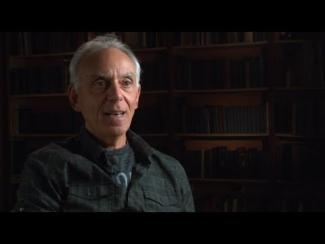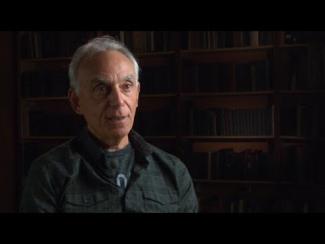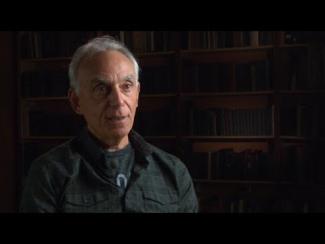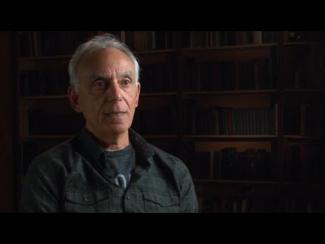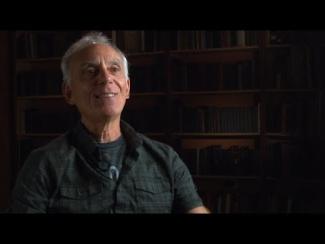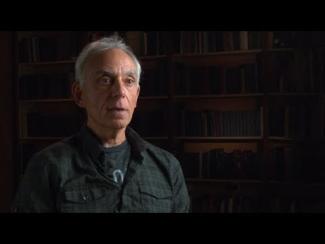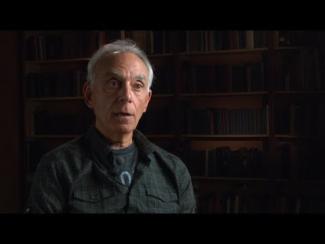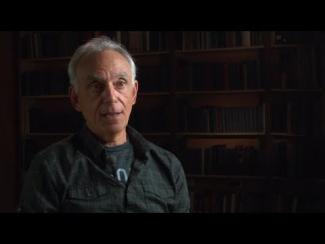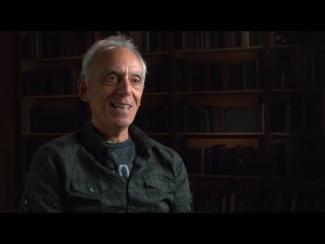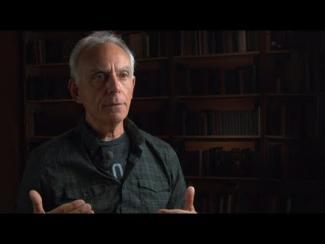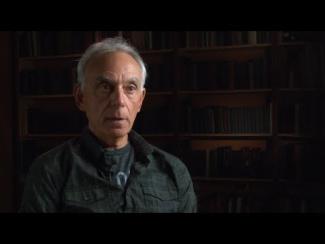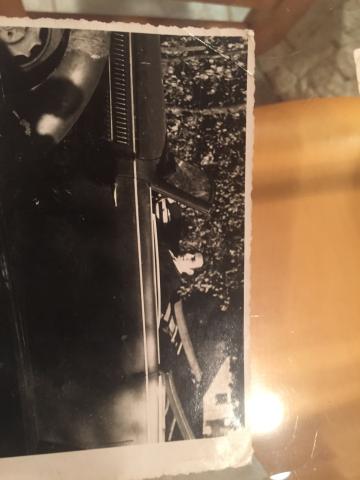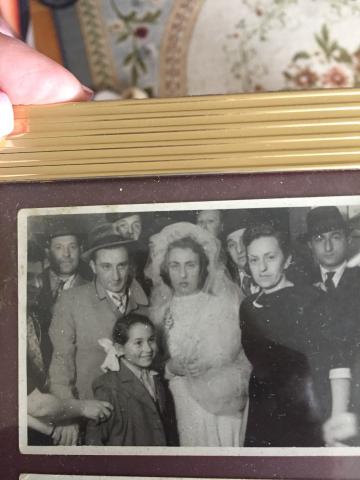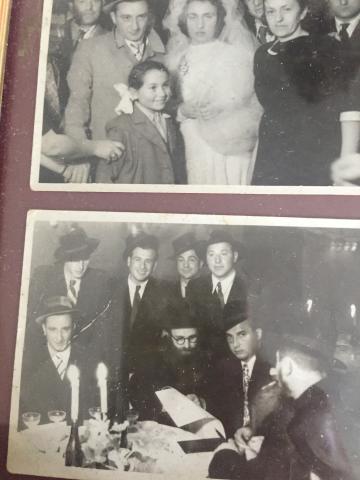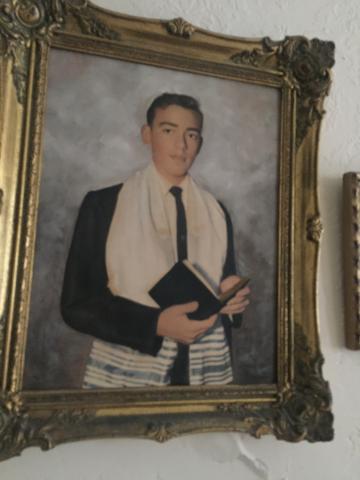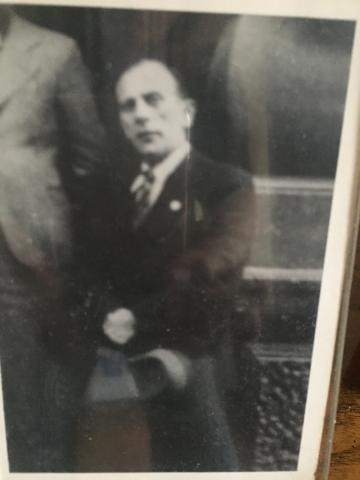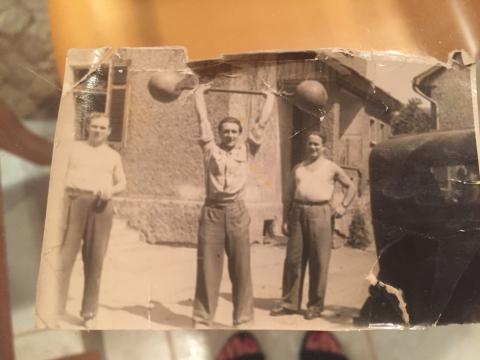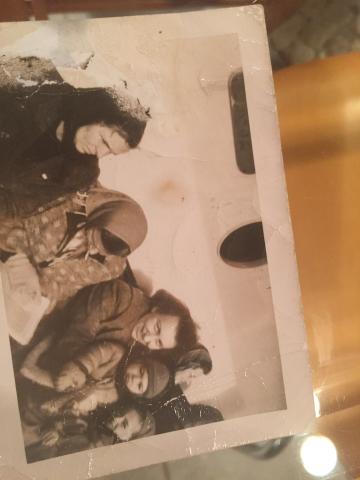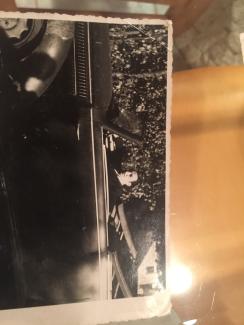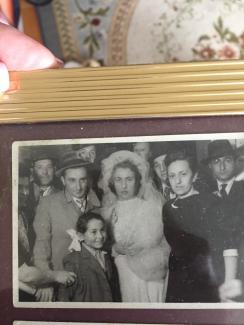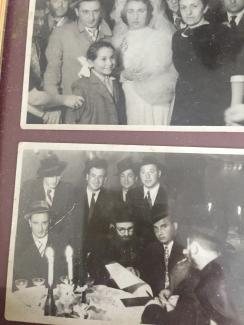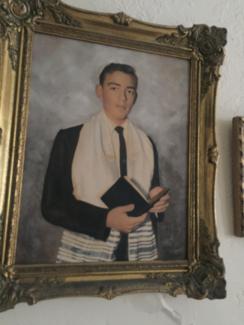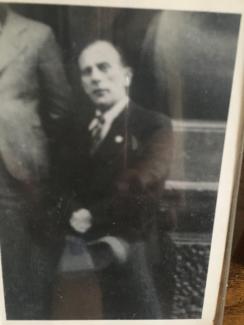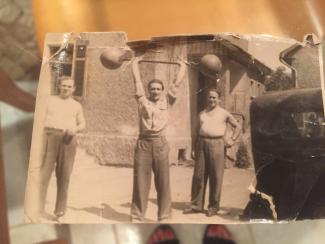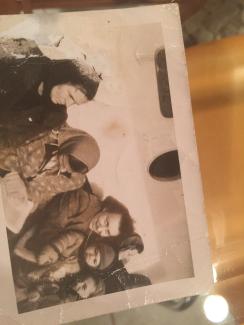The Yiddish Book Center's
Wexler Oral History Project
A growing collection of in-depth interviews with people of all ages and backgrounds, whose stories about the legacy and changing nature of Yiddish language and culture offer a rich and complex chronicle of Jewish identity.
Max Levine's Oral History
Max Levine, son of Yiddish-speaking Holocaust survivors from Poland, was interviewed by Christa Whitney on September 3, 2015 at the Yiddish Book Center in Amherst, Massachusetts. Max's father and mother were in the Warsaw and Lodz ghettos respectively, and both ended up in Auschwitz. He knows more about his father's experiences because years later he was willing to share. His parents met in a displaced persons camp in Germany after the war. His father lost his entire family – more than 100 people – in the Holocaust. In his mother's family, only some first cousins survived. Max's mother would talk about the dance studio that her family owned in Poland and the good life that they lived there before the war. She more recently provided testimony to the Shoah Foundation, but her physical and mental health were very damaged by her losses. Max was raised in Brighton Beach, Brooklyn, in a secular but traditional Jewish home. His father was a butcher in a majority-Black neighborhood in Brooklyn. There was never much money, but there was a lot of love. Max describes playing ball in the park with his friends. A documentary called "Boys of 2nd Street Park" following specific boys throughout their lives was made several years later. The film went to Sundance and is shown on Showtime every year. Max also tells stories about his father's life on the margins. He discusses writing a book about his father called, "It Wasn't My Time." His parents' Yiddish-speaking survivor friends became an extended family. His mother was a wonderful cook and there was always an open-door policy for young and old friends. Max describes himself as a businessman and takes pride in his family and his accomplishments. He lives in suburban Philadelphia with his wife. They have two daughters and two grandchildren. Both sets of grandparents were very involved in his children's lives, so they had firsthand knowledge of their background and culture. He reflects that having produced a loving, healthy, happy family is more important than producing a traditional one. His advice to his children and grandchildren is to embrace the good and not let the bad stuff make you crazy.
This interview was conducted in English.

